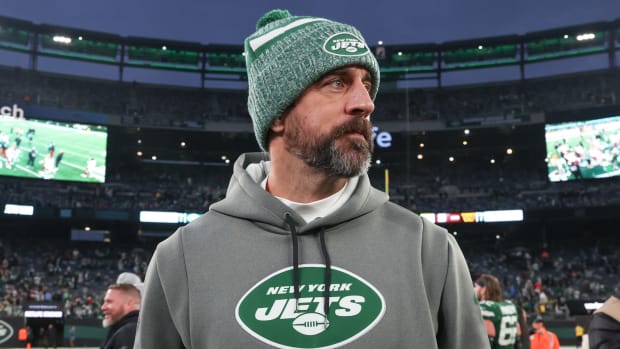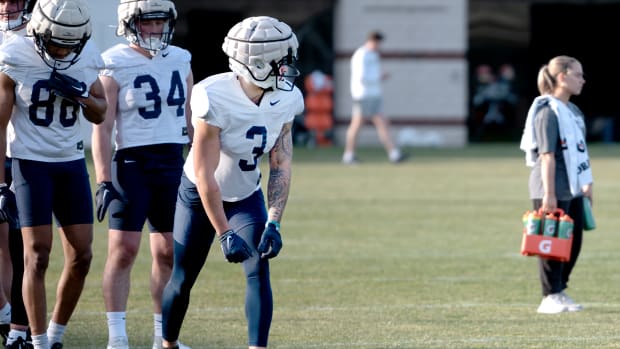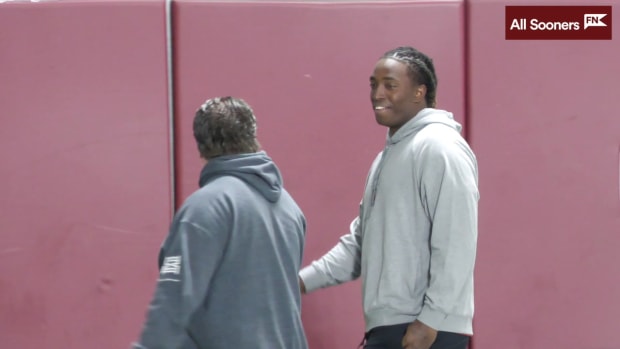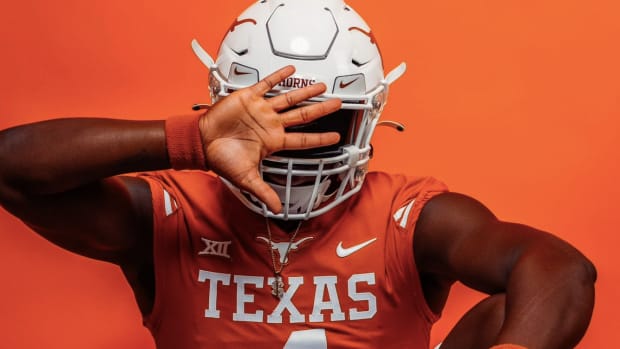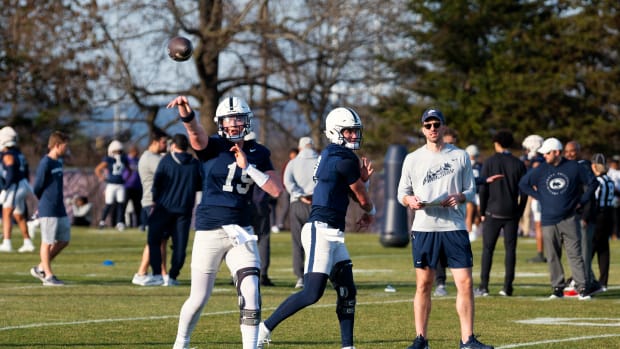College Sports' Black Friday Further Damages NCAA's Rocky Foundation
On Black Friday in college sports, arguably the nation’s best football player and best basketball player—both perhaps the No. 1 picks in their respective drafts in 2020—were suddenly thrust into NCAA eligibility jeopardy. Nobody saw these bombshell stories coming, but everybody is wearily familiar with how the story goes.
Star amateur athletes receive compensation. The rules manual says they shouldn’t. Unpopular decisions are made. Controversy erupts. Anger mounts. The NCAA is vilified. We’ve seen it all before.
But two true superstars in one day? That’s another level of existential angst and philosophical acrimony.
It is the kind of day that can damage a potential championship season at Ohio State, where defensive end Chase Young was sidelined for what he said was accepting money from a family friend in 2018—money he said he repaid. Young will not play Saturday when the No. 1 Buckeyes take on Maryland, and his availability beyond that is in question.
It is the kind of day that can ruin a promising season in Memphis, where 7-footer James Wiseman played all of one game before news broke that he would be sidelined for an undetermined amount of time—but then the player went and got a court injunction, and will play a second game for the Tigers Friday night. Per Wiseman’s attorneys, the family was monetarily assisted in its move from Nashville to Memphis during high school by none other than Penny Hardaway — then Wiseman’s high school and AAU coach, now Wiseman’s coach at Memphis, and most materially a school booster as a former all-time great there.
Most of all, it is the kind of day that rocks foundations to the core, specifically the foundation in Indianapolis. It once again brings the biggest of existential sports questions boiling to the surface: is this the best way to run intercollegiate athletics?
The NCAA sits on a fault line, ground shifting beneath its feet—feet which often seem encased in cement when it comes to nimbly adapting to changing times. Can it still cling to a model that strictly curtails what elite athletes can receive in compensation for their gifts? Or is this the final tipping point in a public opinion debate that already appears to be tilting against the NCAA?
In recent months, the association has been badgered out of Castle Amateurism by various state legislatures—most notably California’s, which passed a bill allowing college athletes in that state to profit off of name, image and likeness. Under duress, the NCAA has begun its own bylaw-altering work on the subject, with a committee issuing findings less than two weeks ago.
So change is imminent. But the space between what the most zealous reformers want and what the most hidebound defenders of the system will begrudge is a gulf. Reform is needed. A lot of it.
At this point, anything less than a massive overhaul of the system seems insubstantial. If an earthquake is coming, it needs to be The Big One.
An increasing percentage of fans seem completely unbothered by college athletic cheating—especially in the form of compensation for athletes or their families. (Academic fraud is less easily condoned.) They want to see great athletes help their schools win, and don’t particularly care what went on under the table to bring said athletes to campus.
Until they get caught, or they sense that their rival got away with cheating. Then they care deeply, for competitive reasons above philosophical ones. Then it becomes a phony “integrity” battle.
The federal college basketball scandal which began in 2017 and hovers over the sport today pretty well forced a reckoning: damn near everyone who recruited at the high end was cheating, and damn near nobody was being caught before the feds started tapping phone lines. Confronted with the details of how a dirty sport works, a lot of fans (and media outlets) shrugged and decided they didn’t care. They don’t believe the rules are ethical, so they don’t mind seeing them broken.
In reality it’s a lot more complicated than that. “Paying the players” under the table often means enriching a middleman who manipulates an athlete, telling him where he’s going to college as opposed to letting him decide. The motives of those involved in paying players are almost never Simon pure.
In Young’s case, his side of the story presents a pretty benign situation. If that bears out, this could be a short suspension. But it’s also an instance of an NCAA rule every player should know and understand, particularly an elite player who has probably been inundated with information about what is permissible or impermissible. If there were any doubt about whether he could accept any money, there was an easy way to find out—call Ohio State compliance.
In Wiseman’s case, Penny Hardaway helped pay for the family’s move to Memphis to make Hardaway a more successful high school and AAU coach coach—ultimately one who would earn a more than $1 million to coach his alma mater. Part of the draw of hiring Hardaway was that he would bring his mother lode of high school talent with him—most notably James Wiseman.
That was the draw. Now here is the drawback.
A guy who had never been involved in college coaching and probably had neither interest in nor knowledge of the NCAA rulebook arranged a commodity acquisition. That may be part and parcel of the AAU world, but it’s a tough sell for his current employer. Roughly a year from now, when this potential infractions case is resolved, Hardaway could be slammed with major sanctions that end his brief time as an outside-the-box college coach.
The NCAA released a statement Friday night during the Tigers' game about Memphis letting Wiseman play despite being ruled "likely ineligible."
"The University of Memphis was notified that James Wiseman is likely ineligible. The university chose to play him and ultimately is responsible for ensuring its student-athletes are eligible to play."
In the simplest terms of wanting to see the best players perform, football and basketball fans were all losers on college sports’ Black Friday. But the bigger story here is the foundational damage done to a system that already sits on a fault line and seems unsure what to do next.

